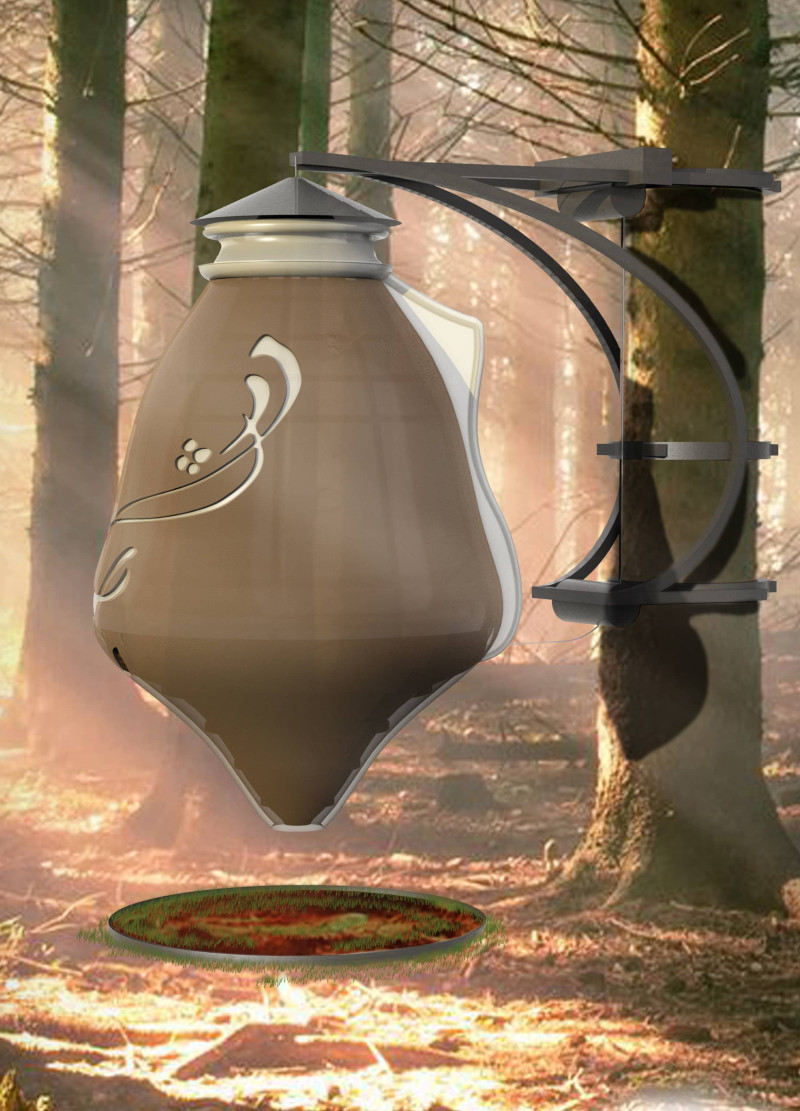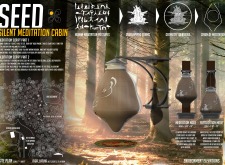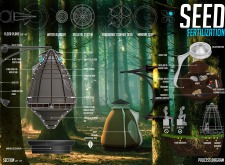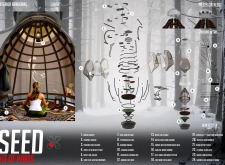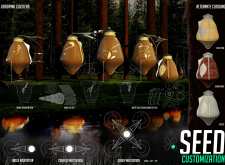5 key facts about this project
The SEED Silent Meditation Cabin is located near Lake Bezdibene in Riga, Latvia. It serves as a space for meditation and personal reflection. The design aims to create an environment that promotes relaxation and a connection with nature. By focusing on the experience of meditation, the cabin invites users to escape the distractions of daily life.
Spatial Arrangement
The layout of the cabin allows for various meditation practices, accommodating individuals, couples, and groups. This flexibility is a defining feature, balancing private spaces with communal areas. Users can find solitude when needed but also enjoy the option to share their experience with others. The cabin’s ergonomic design ensures comfort, encouraging deeper engagement in meditation.
Environmental Sustainability
A key component of the design is sustainability. The cabin includes a composting system that processes human waste, turning it into nutrients for the earth. This aspect emphasizes a commitment to ecological responsibility and fits within the broader theme of mindfulness. By using natural resources thoughtfully, the cabin aligns with the principles of living in harmony with the environment.
Material Integration
Materials play an integral role in shaping the cabin’s character. Wood, glass, and metal are thoughtfully chosen to complement the design. Wooden elements bring warmth and create a cozy feeling, while large glass panels allow natural light to flood the interior. This connection to light enhances the calm atmosphere. Metal provides support and ensures the structure's durability, contributing to a clean, minimal aesthetic.
Sound and Sensory Experience
The design engages users through sound and sensory experience. The cabin encourages occupants to listen to the gentle sounds of nature, like rustling leaves and birdsong. This auditory engagement enhances the meditation experience by fostering a connection to the surrounding environment. The overall experience of using the cabin is enriched by these natural elements, creating a setting conducive to mindfulness.
The elevated platform allows users to feel as if they are floating within the landscape, reinforcing the importance of elevation in enhancing the meditative experience.


